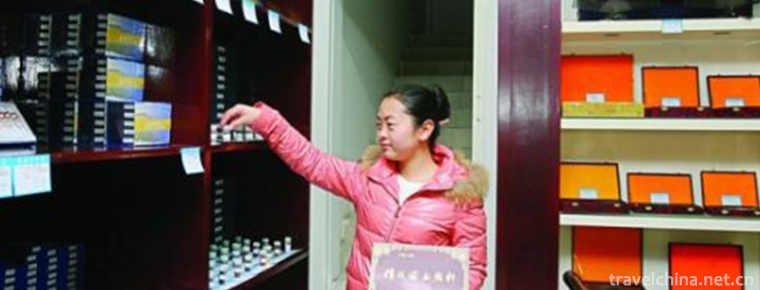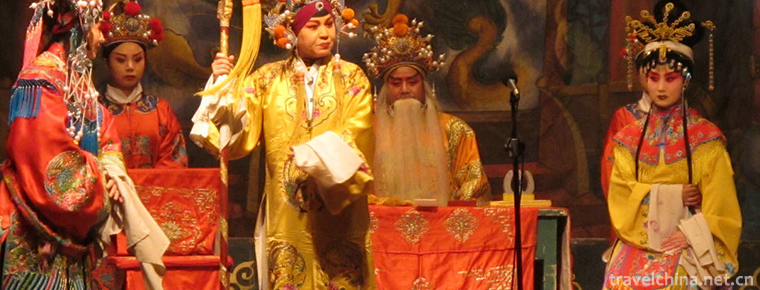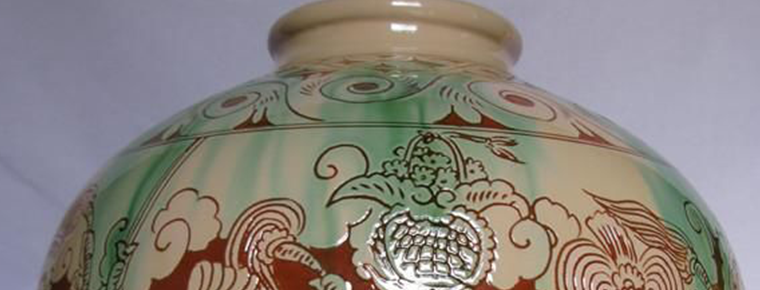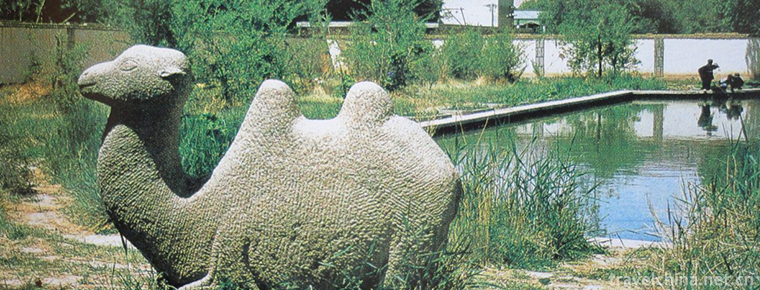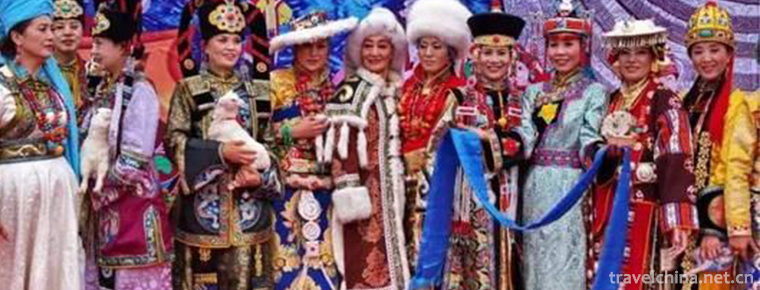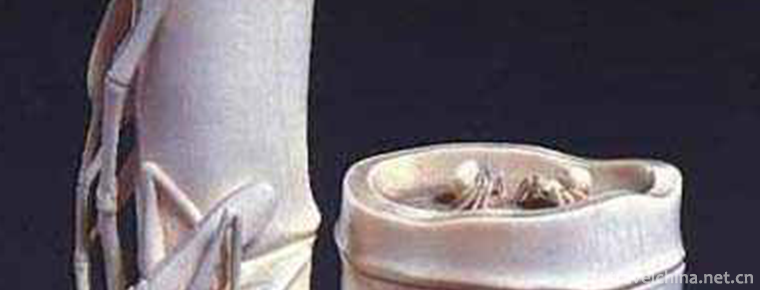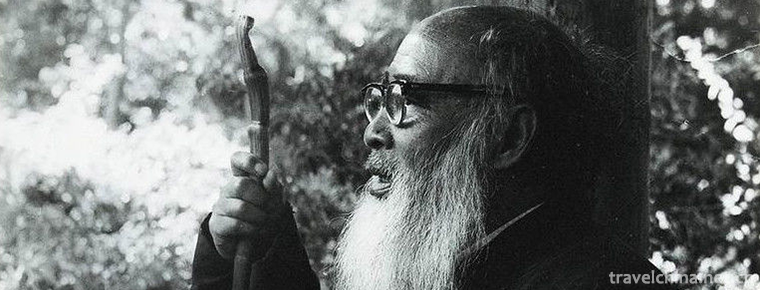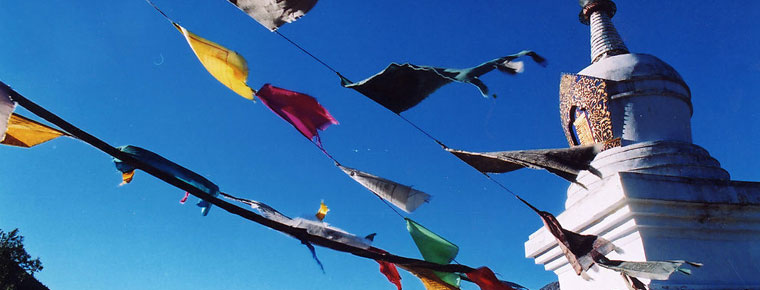Haizi Opera
Haizi Opera
Hezi Opera is one of the traditional operas in Anhui Province. It was named after the pronunciation of the word "sea". It is popular in some areas of Anhui and Henan. The aria can be divided into two categories: main tune and floral tune. The more popular traditional plays are "Beating Peach Blossoms", "Standing on the Wall of Flowers", "The King's Divorce from His Wife" and so on.
On May 23, 2011, the "Hezi Opera" declared by Funan County of Anhui Province was listed in the third batch of national intangible cultural heritage list with the approval of the State Council.
Brief history of drama
Because the singing line is named after the pronunciation of the word "sea". It is popular in Funan, Yingshang, Linquan, Huaibin, Gushi, Shangcheng and Xixian in Northwest Anhui. Jiaqing and Daoguang were formed in Qing Dynasty. The vocal tunes can be divided into two categories: the main tunes are old-fashioned tunes, Hi-wa-zi and Bitter-wa-zi; the main tunes are six or seventy such as , , , . tradition
There are more than one hundred operas, such as this one, Folk Opera and three minor operas. The more popular ones are "Beating Peach Blossoms", "Standing Flower Wall", "The Emperor's Divorce from His Wife" and so on. Before liberation, gongs and drums were used to accompany them, and silk and bamboo instruments were added after liberation.
Hezi Opera, also known as Kezi Opera, Hezi Opera and Hazi Opera, is named for its beginning of the aria with "cough" or "ah" as the tune, and also for the function word "cough" as the tune between the lines. At the same time, because of its simple props and clothes, a flower basket can be fitted with a complete set of wardrobes, walk through villages and lanes, draw ground for the "platform" can open gongs to sing, so it is also known as flower basket opera, floor flutter cage, lantern twist opera, ground slippery, folk song troupe, etc., Xixian County is also known as "Niang Dang demon", popular in decoration, business, Gu, Xie, Huaixian County and Anhui Fuyang, Luan area. Originated in Gushi and Shangcheng area, the performing arts based on folk floor lantern operas absorbed brothers'operas developed and evolved. It was formed in the middle of Qing Dynasty and has a history of more than 200 years.
After liberation, Hezi Opera gained the attention of the Party and the government.
Founded in 1958, the Funan Hi Opera Troupe averaged more than 280 performances a year in the 1950s and 1960s.
From 1978 to 1981, there were more than 300 performances in the year, which greatly satisfied the people's thirst for cultural life.
For various reasons, the Funan Hi Opera Troupe was abolished in 1982, and the activities of the non-governmental groups were rapidly shrinking, and there were few successors. Funan Hezi Opera is facing a serious survival crisis.
In the 21st century, the county committee and county government have intensified their efforts to protect cultural heritage, and Funan Hezi Opera has received the focus of attention.
artistic characteristics
Music
The music system of Hezi Opera consists of singing and percussion.
The main part of the aria is the slab tune, supplemented by the tune plate, the chorus of the bang tune, the interlude of percussion music, the trinity of singing, bang and playing. Hezi Opera's opera music, also known as miscellaneous tunes, is a direct use of folk dance "Lantern" music, a total of more than 30 kinds, commonly used are Fengyang tune, color tune, long-term work, open door tune and so on.
The band consists of three or five people.
The representative plays of Hezi Opera are "Little Family" and so on.
The main theatre troupes are Luo Chengwudanggang's troupes in Huangchuan County.
form
Hezi Opera has a variety of performances. Sometimes it plays on the terrace and grass terrace. Sometimes it plays on the floor and sings and pulls lights.
The so-called "singing and pulling lamp", commonly known as "dew lamp", is that in the new lunar month, the theatre troupe in this place continued to perform day and night performances, while the sun did not come out and rushed to another place to perform.
When the theater troupe left, the audience arranged in battle and firecrackers were fired to deliver the play, which was called "light sending". The people who took over the theatre also set up to welcome the theatre, called "receiving the lights". The friendship between artists and peasants has been enhanced.
There is also an old rule in Chen Hu's Hezi Opera. Whenever the opera begins, a running headlamp is used as a cushion before the main performance. The jargon is "Jump and Add Officials". Maybe we should create a warm scene to arouse the audience's favor. In feudal society, opera performers were regarded as the "gatekeepers" of the lower class in the eyes of noble gentry.
In the years of famine, Chen Hu artists have no choice but to live a hungry and cold life with props as a sign of begging for food. After liberation, the artists turned over, became the masters of the country politically and had enough food and clothing in life.
After the Third Plenary Session of the Eleventh Central Committee of the Communist Party, many artists also lived in new tile houses. With the improvement of people's material and cultural life, Chen Hu's Hi Zi Opera is also improving artistically.
In 1984, the County Amateur opera tune, the performance of the folded opera "Exploring the Kiln" won an excellent performance award.
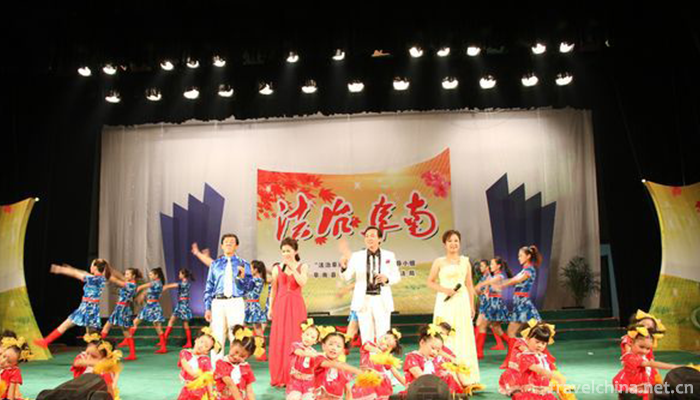
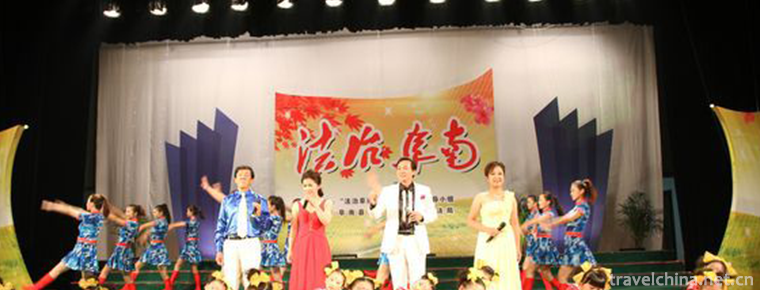
Haizi Opera
-
Taihang Grand Canyon
Linzhou Taihang Grand Canyon, located in the northwest of Henan Province and Linzhou City in the eastern foot of the southern Taihang Mountains
Views: 285 Time 2018-12-09 -
Four Seasons Hotel Guangzhou
Four Seasons Hotel Guangzhou is located in Guangzhou International Finance Center on the 103th floor of Zhujiang New Town, the financial center of Guangzhou, at the top of this modern landmark.
Views: 238 Time 2018-12-16 -
Tengtou Ecological Tourism Area
Embedded between Fenghua and Xikou, Tengtou Eco-tourism Area is located in Xiaojiang Plain, close to Jiangba and Yongxi Highway. Located 6 kilometers north of Fenghua City
Views: 250 Time 2019-02-13 -
Production Techniques of Chinese Painting Pigments
Jiang Sixutang's skill in making Chinese painting pigments is one of the intangible cultural heritages. The manufactured products of Jiang Sixutang Chinese Painting
Views: 168 Time 2019-05-02 -
Heyang jumping drama
Heyang Dance Opera is a kind of local opera in Heyang County, Shaanxi Province. It belongs to the nature of social opera. When performing, there is no singing voice,
Views: 390 Time 2019-05-02 -
Firing Techniques of Jieshou Coloured Pottery
The firing technique of Jieshou colored pottery, the local traditional handicraft technique of Jieshou City, Anhui Province, is one of the national intangible cultural heritages.
Views: 127 Time 2019-05-06 -
Legend of Camel Spring
Camel Spring is a provincial key cultural relic protection unit and a patriotic education base. Located in Jiezi Township Unity Village, with convenient transportation and direct access to tertiary oi
Views: 170 Time 2019-05-15 -
Mongolian Costume
Mongolian costumes, also known as Mongolian robes, mainly include gowns, belts, boots, jewelry and so on. However, there are differences in styles due to different regions. Mongolian costume has a str
Views: 140 Time 2019-06-03 -
ivory carving
Ivory carving refers to the carving process and its products with ivory as the material. It is an ancient Chinese traditional art, folk arts and crafts. Ivory is the strongest part of an elephant. It
Views: 126 Time 2019-07-06 -
Tibetan lads are really popular
Who is Ding Zhen? He is a Tibetan Boy, 20 years old. On November 25, a tourism propaganda film "Ding Zhen's world" made him popular all over the country. Netizens once thought that his hometown was in Tibet, and the photographer could not help but clarify that Ding Zhen was from Litang County, Ganzi, Sichuan Province.
Views: 122 Time 2020-12-07 -
Geographical environment of Mianyang
Mianyang City is located in the northwest of Sichuan Basin, in the middle and upper reaches of Fujiang River, bordering Qingchuan county and Jiange County of Guangyuan City in the East, Shehong city and Daying County in Suining City in the south, Luojiang
Views: 342 Time 2020-12-14



